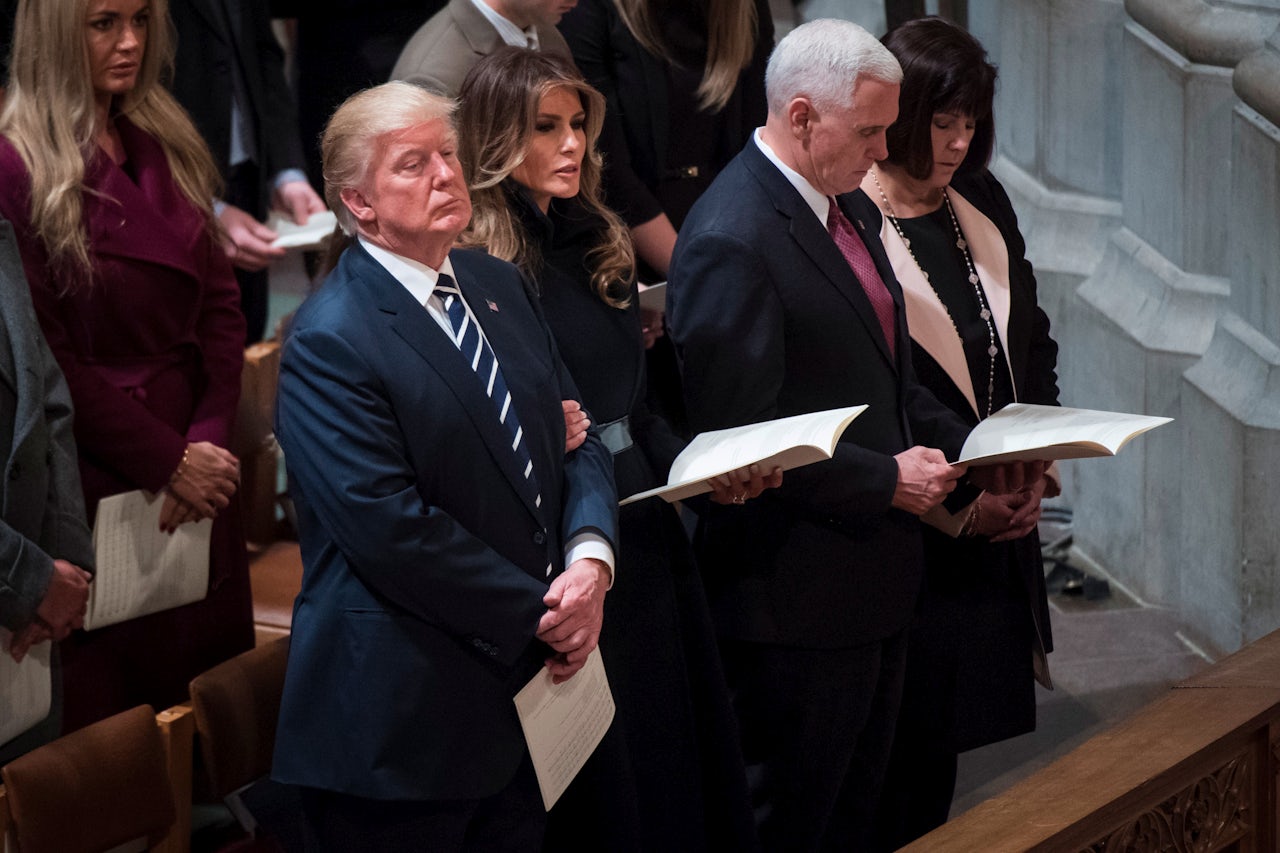President Trump remains a nasty old bigot, but he will not achieve the broad religious discrimination that he — or perhaps his ultra-conservative VP Mike Pence — originally sought.
Trump is expected today to sign an executive order on, ahem, “religious liberty” that is far more modest in scope than a highly controversial draft that leaked in February. Because it is so scaled back, it is less likely to be stopped by legal challenges, experts say.
“This [revised] Order is not vulnerable to immediate court challenge, and it will not be so challenged,” Ira Lupu, a professor emeritus at the George Washington University School of Law and an expert on constitutional law and religion, told The Outline.
In January, The Nation reported on an earlier draft of the order, which would have allowed broad discrimination against LGBTQ people by protecting so-called “religious freedom��� everywhere:
“When providing social services, education, or healthcare; earning a living, seeking a job, or employing others; receiving government grants or contracts; or otherwise participating in the marketplace, the public square, or interfacing with Federal, State or local governments.”
In essence, any business that “believes, speaks, or acts (or declines to act) in accordance with the belief that marriage is or should be recognized as the union of one man and one woman, sexual relations are properly reserved for such a marriage, male and female and their equivalents refer to an individual’s immutable biological sex as objectively determined by anatomy, physiology, or genetics at or before birth, and that human life begins at conception and merits protection at all stages of life,” would have been allowed to refuse business and services to LQBTQ people.
Lupu said that the earlier version would have been highly vulnerable to legal challenges, like Trump’s failed travel bans, which were stymied in court because they targeted Muslims.
“The best argument for invalidating [the order as it was originally written would have been] that it favored a set of conservative religious views on sex, marriage, reproduction, and gender identity over all other views, religious or secular,” Lupu said. “The provisions expressing that favoritism will be most subject to immediate challenge, based on the Establishment Clause of the First Amendment. I think that argument is very strong.”
But on Wednesday night, White House officials provided a one-page summary of a far more limited order that appears to have two primary goals: 1) provide regulatory relief for employers who have a religious objection to providing health care that includes coverage for contraceptives; 2) loosen the enforcement of the Johnson Amendment, which prohibits tax-exempt organizations like churches from engaging in political activity. While both of these could prove controversial, they are unlikely to stir the same widespread anger as the travel ban, or the earlier leaked draft of this order.
The Johnson Amendment, which dates to 1954, is loosely enforced anyway, as many religious organizations are politically active. But if Trump directs the IRS not to enforce the Amendment, pastors will be able to endorse political candidates without fear of consequence.
These will amount to more modest changes — offensive to many, but hardly discrimination on the level that Trump and Pence had apparently hoped for.
